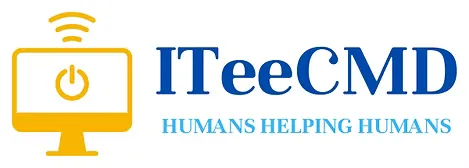Our Latest Blog Posts!

Secrets of Success: IT vs. Cyber Security Differences
Secrets of Success: IT vs. Cyber Security Differences
The intersection of cybersecurity and healthcare has become increasingly important as digital transformation reshapes the medical landscape. As cyber threats evolve, healthcare organizations face unique challenges in protecting sensitive patient data while maintaining operational efficiency. Many healthcare providers mistakenly believe their IT departments handle all cybersecurity needs, creating dangerous security gaps.
This confusion between IT services and cybersecurity represents a significant industry-wide problem. Small healthcare businesses often lack proper education about the distinct roles these functions play in their organizations. As regulatory requirements tighten and cyber insurance renewals become more demanding, healthcare providers are discovering that building a comprehensive cybersecurity program isn't just about compliance—it's becoming a competitive advantage in the marketplace.
Key Takeaways
Cybersecurity and IT services are separate disciplines requiring different expertise and approaches.
Healthcare organizations face unique cybersecurity challenges but often demonstrate greater awareness due to long-standing HIPAA regulations.
Small businesses increasingly recognize cybersecurity programs as competitive advantages rather than just necessary expenses.
Meet the Speaker: Reg Harish
Leadership at Orbital Fire Cyber Security
Reg Harish currently serves as the CEO of Orbital Fire Cyber Security. In this role, he leads the company's efforts to provide comprehensive cyber security solutions specifically designed for small businesses. His leadership approach focuses on creating partnerships with Managed Service Providers (MSPs) across the country to help them enhance their existing security offerings.
Company Mission and Services
Orbital Fire operates as an all-in-one cyber security solutions provider. The company has built its business model around supporting MSPs rather than competing with them. Orbital Fire handles specialized security services like compliance assessments, security testing, workforce security, managed SOC, incident response, and virtual CISO services. They intentionally avoid overlapping with MSP-provided services such as firewalls, EDR, encryption, MFA, and conditional access technologies.
MSP Collaboration Strategy
Harish's company specifically targets partnerships with MSPs who already have established relationships with small businesses. This approach addresses several industry challenges:
MSP Frustrations: Many MSPs feel overwhelmed by cyber security tool overload and rising costs
Industry Divergence: Cyber security and general IT have become increasingly separate disciplines
Complementary Expertise: The partnership allows each party to focus on their core strengths
This relationship creates better outcomes for small businesses while helping MSPs reduce liability and potentially generate additional revenue through security referrals.
Professional Background and Experience
Before founding Orbital Fire, Harish co-founded AutoTask around 2000, helping to establish one of the industry's leading PSA platforms. Between these ventures, he founded GRE Castle Security, which grew to become one of the fastest-growing cyber security professional services firms in the country. Under his leadership, GRE Castle Security specialized in enterprise-level security services, providing Harish with deep expertise in both the technical and business aspects of cyber security.
Cybersecurity in Healthcare
Protecting patient data has become a critical concern for healthcare organizations of all sizes. The healthcare industry faces unique challenges when it comes to cybersecurity due to the sensitive nature of patient information and strict regulatory requirements.
Helping Small Medical Practices Stay Secure
Small healthcare practices often struggle with cybersecurity implementation. They need specialized support that understands both healthcare regulations and security needs. Modern cybersecurity providers recognize that healthcare organizations have different security requirements compared to other industries. With mature compliance frameworks like HIPAA that have existed for decades, healthcare providers generally have a better awareness of security requirements than businesses in some other sectors.
Small medical practices are increasingly finding that strong cybersecurity practices provide competitive advantages. Patients and partners often ask about security measures before choosing healthcare providers. Insurance renewals, regulatory compliance, and third-party risk management all require robust security programs.
Working Through Technology Partners
Many cybersecurity firms partner with Managed Service Providers (MSPs) rather than working directly with healthcare organizations. This approach offers several benefits:
Existing relationships - MSPs already have trusted connections with healthcare providers
Complementary services - Each provider focuses on their specialty area
Clear separation of duties - Technology management and security oversight remain separate
This partnership model creates a system of checks and balances. The cybersecurity team provides services like:
Compliance assessments
Security testing
Staff security training
Incident response
Security monitoring
Meanwhile, MSPs handle technical implementations such as:
Firewalls
Endpoint protection
Encryption
Multi-factor authentication
Access controls
Simplifying Security for Healthcare Providers
Healthcare organizations often face confusion about cybersecurity. Many believe their IT department or technology provider handles all security needs. This confusion stems from how cybersecurity evolved from purely technical roots into a broader discipline that now includes operational security and personnel security.
Small healthcare practices frequently report feeling:
Overwhelmed by too many security tools
Frustrated by rising security costs
Confused about which security measures are truly necessary
By working with specialists who understand healthcare's unique requirements, medical practices can implement appropriate security measures without unnecessary complexity or expense. This approach helps resolve the common frustration of "stack overload" where organizations implement too many disconnected security tools.
The healthcare industry's familiarity with compliance requirements gives it an advantage in understanding the importance of security. However, all organizations, including healthcare providers, benefit from clearer education about the differences between IT services and cybersecurity programs.
Defining Key Responsibilities
MSP Functions
Managed Service Providers (MSPs) play a crucial role for businesses by handling their technology needs. They typically manage day-to-day IT operations including:
Network management and maintenance
Hardware and software support
Implementation of security tools like firewalls
EDR (Endpoint Detection and Response) services
Encryption solutions
Multi-factor authentication setup
Conditional access configuration
MSPs build relationships with clients across various industries by serving as their trusted technology partners. Their focus remains primarily on the operational technology aspects rather than specialized cybersecurity functions.
Orbital Fire's Service Portfolio
Orbital Fire operates as an all-in-one cybersecurity solutions provider designed specifically to complement MSPs. Their services include:
Core Services Description Compliance assessments Evaluating regulatory alignment Security testing Identifying vulnerabilities and weaknesses Workforce security Training and awareness programs Managed SOC Security Operations Center monitoring Incident response Handling security breaches and events Virtual CISO Executive security leadership services
Their business model involves partnering with MSPs nationwide rather than competing with them. This approach helps MSPs avoid cybersecurity liability while providing better outcomes for small businesses across healthcare, manufacturing, and other industries.
Technology Management vs. Cybersecurity
There's a common misconception that IT departments and cybersecurity are the same thing. In reality, they represent different disciplines with distinct functions:
IT Departments:
Focus on technology operations
Maintain systems and infrastructure
Ensure business technology works properly
Handle day-to-day technical issues
Cybersecurity:
Involves operational security
Includes personnel security aspects
Requires specialized expertise
Provides oversight and auditing of IT functions
Many businesses incorrectly believe their IT department handles all cybersecurity needs. This confusion sometimes benefits large organizations in both industries, as the lack of clarity hasn't been adequately addressed for small businesses.
Why Specialized Expertise Matters
The separation between cybersecurity and IT has grown increasingly important. These fields have diverged significantly in recent years with very little overlap remaining between them.
This separation creates several requirements:
Businesses need specialists in both domains
Each discipline should provide oversight for the other
Having independent perspectives improves security posture
For businesses in regulated industries like healthcare (with HIPAA) or manufacturing (with CMMC and DFARS), specialized cybersecurity expertise becomes even more critical. Cybersecurity has evolved beyond being just a technical concern—it's now:
A business necessity
A potential competitive advantage
A requirement from customers and partners
Essential for cyber insurance coverage
Small businesses increasingly recognize that building proper cybersecurity programs creates efficiencies, reduces costs, and addresses compliance requirements across multiple domains.
Teaching Small Businesses About Security
Differences Between IT and Security Protection
Small businesses often get confused about the line between IT services and cyber security. Many think having an IT department means they're covered for security risks. The truth is these are two separate areas that need different experts.
IT teams typically handle things like firewalls, encryption, and antivirus software. Cyber security teams focus on compliance checks, security testing, and incident response.
This confusion isn't an accident. Both industries sometimes benefit when small businesses don't understand the difference. This lack of clarity makes it harder for business owners to make good decisions about their protection needs.
Increasing Knowledge and Clarity
Small businesses are learning more about security needs, though progress varies by industry. Healthcare organizations tend to have more familiarity with security requirements because of HIPAA rules that have existed for many years. Manufacturing companies often face stricter enforcement of security standards.
The business case for security is becoming clearer as:
New customers ask about security programs
Existing clients send security questionnaires
Cyber insurance renewals require more security measures
Regulatory oversight increases in many industries
Benefits of a proper security program:
Competitive advantage
Cost reduction
Improved efficiency
Better risk management
The number of small businesses investing in actual security programs is growing rapidly as these companies recognize that security is no longer optional but essential for doing business.
Industry Trends
Market Segments and Client Needs
Cybersecurity solutions are increasingly in demand across various business sectors. While companies serve clients in diverse industries from retail to landscaping, healthcare and manufacturing represent about 40% of the customer base for specialized cybersecurity firms. These two sectors have specific compliance requirements and security challenges that make them particularly important focus areas for cybersecurity providers.
Healthcare and Manufacturing Specialization
Healthcare organizations have faced HIPAA regulations for decades, creating a certain level of security awareness in this sector. Manufacturing businesses, meanwhile, deal with frameworks like CMMC, DFARS, and NIST 800-171. Each industry requires tailored cybersecurity approaches:
Industry Key Regulations Maturity Level Healthcare HIPAA Security Rule Higher familiarity due to long-term requirements Manufacturing CMMC, DFARS, NIST 800-171 Strong enforcement driving adoption
Enforcement and Industry Compliance Variations
Different industries experience varying levels of regulatory enforcement. Manufacturing has seen more precise and rigorous enforcement of cybersecurity standards compared to some other sectors. This stricter oversight has accelerated security awareness among smaller manufacturing firms. Healthcare organizations generally show higher maturity in understanding compliance requirements, while other industries may still be in earlier stages of cybersecurity awareness.
The Importance of Cybersecurity Education
Small businesses increasingly recognize cybersecurity as a business necessity rather than just an IT function. This growing awareness stems from several factors:
Business pressure: New customers inquiring about security programs
Supply chain requirements: Existing clients sending security questionnaires
Financial concerns: Complicated cyber insurance renewal processes
Regulatory oversight: Industry-specific compliance requirements
The percentage of small businesses implementing comprehensive cybersecurity programs is still relatively small but growing rapidly as more organizations recognize that security can become a competitive advantage rather than just a cost center.
The Key Role of Digital Defense
Business Effects and Risk Handling
Cybersecurity has become crucial for businesses of all sizes. Companies face increasing pressure from multiple directions that make security essential. Today's businesses aren't just worried about data breaches and ransomware - they face practical business challenges related to security.
Many organizations find that cybersecurity directly affects their ability to operate effectively. Customers now routinely ask about security programs and send detailed questionnaires. Insurance renewals have become significantly more difficult, with providers requiring proof of proper security measures. These factors create real business impacts that can't be ignored.
Key business pressures include:
Customer security questionnaires
Insurance renewal requirements
Regulatory compliance demands
Third-party risk management expectations
Risk management has evolved beyond just having basic security tools. Organizations need comprehensive programs that address technology, people, and processes to properly handle modern threats.
Strategic Benefits Through Security Initiatives
Building strong security programs offers more than just protection - it creates real business advantages. Companies that invest in proper cybersecurity find they can differentiate themselves from competitors who only meet minimum requirements.
A well-designed security program delivers multiple benefits:
Reduces operational costs over time
Creates business efficiencies
Builds customer trust
Meets compliance requirements efficiently
Many businesses now recognize that security can be an asset rather than just an expense. By implementing comprehensive programs, they position themselves as trustworthy partners in a landscape where security concerns influence purchasing decisions.
Growing Recognition Among Smaller Companies
Small businesses are increasingly understanding the importance of cybersecurity. While only a small percentage currently have robust security programs, this number is growing rapidly as awareness spreads.
There's been confusion about what constitutes proper cybersecurity, with many smaller organizations believing IT departments automatically handle security needs. However, these are distinct disciplines with different focuses:
IT Department Cybersecurity Technology management Risk assessment System maintenance Compliance frameworks Network administration Security testing User support Incident response
Small businesses across industries are learning that cybersecurity directly impacts their ability to do business. This growing awareness is driving more investment in security programs that go beyond basic technical controls.
Address
2618 San Miguel Drive
Newport Beach, CA, 92660
Tel: 949-257-6998
Address
Newport Beach, CA, 92660
Tel: 949.257.6998
Follow Us
© 2025 all rights reserved. Created by Growth Generators. Privacy | SMS Disclosure.

